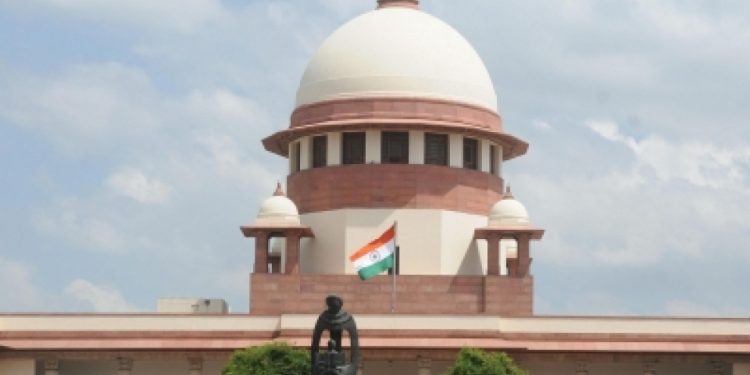New Delhi: The Karnataka government Tuesday assured the Supreme Court that it would not take action on its March 27 decision to scrap the 4 percent Muslim quota in the OBC category for jobs and education.
Solicitor General Tushar Mehta, representing the Karnataka government, said he will be filing the reply during the day.
A bench of Justices KM Joseph and BV Nagarathna considered Mehta’s submission and scheduled the matter for consideration May 9.
The apex court ordered that the earlier arrangement will continue till the next date of hearing as Mehta sought adjournment in the matter.
The Solicitor General said he is in personal difficulty, as he is arguing before the constitution bench which is hearing petitions related to same-sex marriage.
He urged the court to put the matter for hearing on some other day.
The bench said no appointment as per assurance by the Solicitor General would be made and no prejudice would be caused to any contention.
Senior advocate Dushyant Dave, appearing for the petitioners, submitted that the hearing has already been deferred four times while opposing Mehta’s request to adjourn the matter.
Dave said they will again do it and the petitioners would be affected by it. Mehta said the interim order passed by the court is already in the petitioners.
Mehta, April 18, had submitted that the Karnataka government would need more time to file its affidavit.
The apex court deferred the hearing till April 25.
The state government April 13 had assured that it will not go ahead with any admission to educational institutions or make appointments on jobs in terms of its March 27 order.
The Supreme Court had made some strong observations against the manner in which the Karnataka government scrapped the 4 percent OBC quota for Muslims and placed them under the Economically Weaker Section (EWS) category, saying the foundation of the decision-making process is highly shaky and flawed.
The top court had told the Solicitor General Tushar Mehta, representing the Karnataka government that “prima facie, we are telling you, the first thing is that the order which you have passed appears to suggest that foundation of the decision-making process is highly shaky and flawed it is on an interim report, the state could have waited for a final report that is one aspect. What is the great urgency?”
After hearing detailed arguments, the bench had said the decision was prima facie based on fallacious assumption and was vitiated as it is based on an interim report of a commission.
The petitioners moved the apex court challenging the Karnataka government’s decision to scrap the Muslim quota.
IANS






































